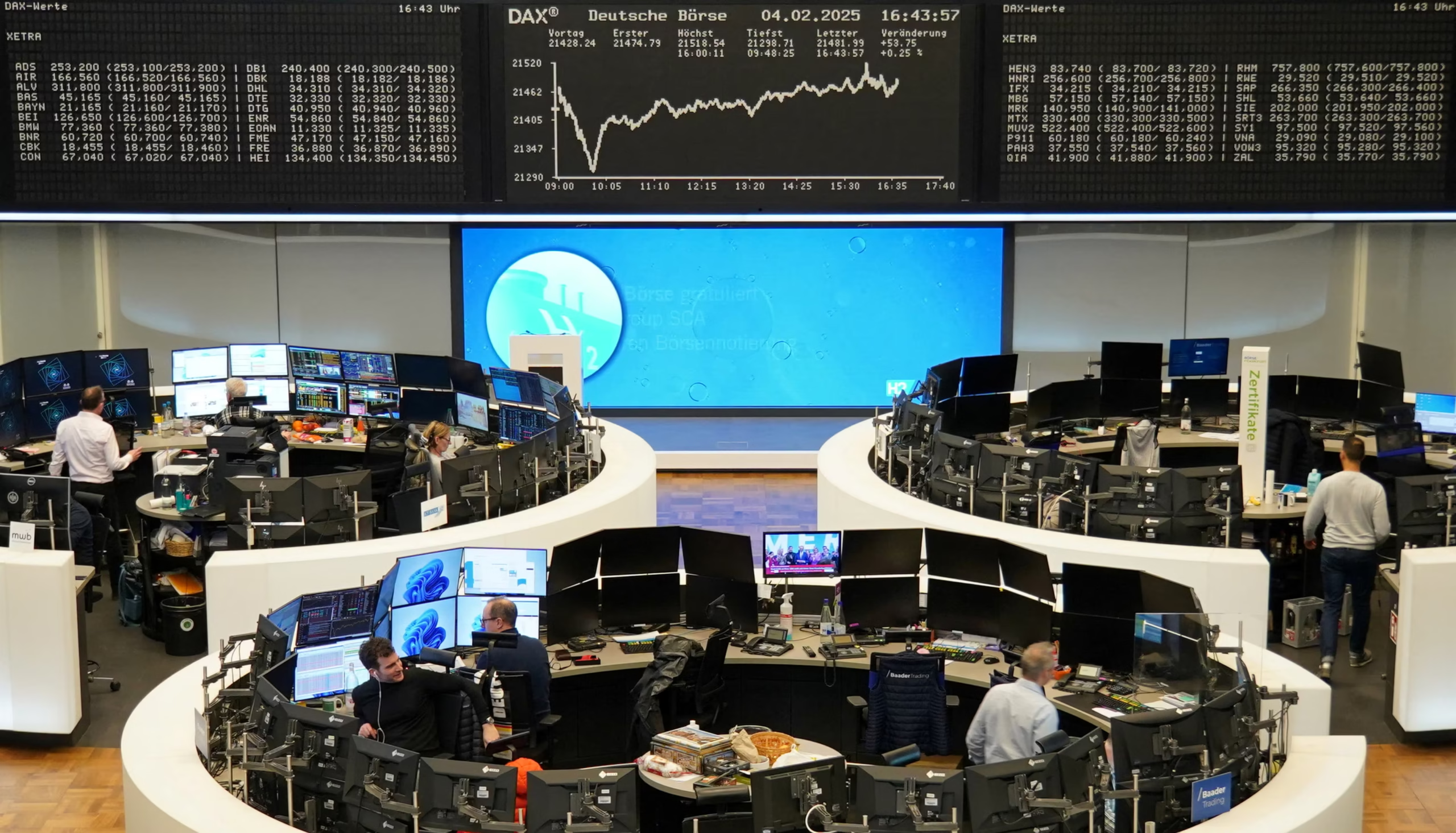Business
What Are The Best European Stocks To Buy?

European stocks are forecast to climb in the coming months amid improving economic growth and strong returns of cash to shareholders, according to Goldman Sachs Research.
But the potential gains will be limited by a drag on corporate earnings from a stronger euro currency.
“Selectivity is therefore key,” writes Sharon Bell, a senior strategist in Goldman Sachs Research, in the team’s report.
Europe’s stock market had a strong start to 2025, with equities on the Continent initially outperforming their American peers. But the STOXX 600 index of large European companies has been roughly flat since March, weighed down by weak corporate earnings and higher valuations.
Goldman Sachs Research forecasts the STOXX Europe 600 will rise about 5% to 580 over the next 12 months (as of September 1). The team anticipates a 12-month total return, including dividends, of 8%.
Are European stocks expensive now?
European equities are more expensive than they were earlier in 2025, after a “stellar start to the year,” Bell writes. The forward price/earnings ratio—a measure of the future value of stocks—has risen to 14.4. That puts European equities in the 70th percentile of their historical valuation range going back to the year 2000.
“That said, other assets are similarly stretched—often more so,” Bell writes. Compared with spreads in sovereign and high-yield bonds, for example, Bell says equities don’t seem excessively priced.
And European stocks are still at a considerable discount to US stocks, even when they are adjusted for sector exposure or different economic growth expectations. While European equities are now highly valued in absolute terms, Bell writes that prices are still reasonable in relative terms.
READ ALSO: Tokyo Stock Market Soars Over Trump’s Suspension Of New Tariffs
Second-quarter European company earnings were in line with expectations this year, but earnings estimates for the full 2025 financial year and for 2026 are being revised lower across almost all sectors. Consensus among industry analysts is for STOXX 600 earnings-per-share to decline 1% in 2025—down from a consensus estimate of 8% growth at the start of the year.
Yet analysts’ estimates for 2026 earnings are likely still too high, according to Goldman Sachs Research. The consensus of forecasts is for 13% earnings-per-share growth next year, while Goldman Sachs Research expects an increase of just 4%.
The major difference, Bell writes, is that Goldman Sachs Research expects the euro to strengthen about 7% to 1.25 versus the US dollar over the next 12 months (as of September 1), which would be a significant drag on European companies’ earnings as the relative value of their sales in the US declines. For this reason, the team expects domestic stocks with resilient earnings to perform better in the coming months.
READ ALSO: Global Stock Markets Plunge, Amidst US Recession Fears
Is demand for European stocks growing?
After a period of outflows between 2022 and 2024, European equity funds are receiving inflows from domestic and international investors this year.
This shift is attributed to investors diversifying their portfolios away from US assets, driven by a declining US dollar and concerns over the high concentration and expense of US technology stocks.
Despite the recent pick-up in demand, investor allocation to European equities remains relatively light, especially among Europe-based investors (European domestic investors have significantly increased their allocation to US assets over the past 15 years, rising from 15% in 2009 to more than 40% today).
Line chart showing European investment funds’ holdings in European equities drop over time as investments in US equities increase.
What are the best European stocks to buy?
The US and European markets have diverged dramatically this year. In Europe, value stocks—companies which appear underpriced—have outperformed. In the US, growth stocks—companies that are expected to grow faster than the rest of the market—have dominated (and tech companies especially).
Similarly, the US stock market has become more concentrated, whereas concentration is fading in Europe. And small companies are outperforming on Europe’s stock market, even as they underperform in the US.
This divergence is explained by the factors driving the expansion of large, listed growth companies in Europe. Since the Global Financial Crisis of 2007-2008, the European stocks with the best profit growth have been either companies with US dollar earnings (benefitting from US economic growth, high drug prices, and a strengthening dollar) or China-exposed stocks benefitting from strong GDP growth in China.
Now, these forces have shifted, and in some cases even reversed. “The dollar is falling, US growth is slowing, trade barriers have risen, and the Trump administration is pushing for lower US drug prices,” Bell writes.
Meanwhile, China’s relationship with Europe has pivoted away from that of a high-growth market to sell into and towards that of a major competitor that is creating deflation for the region.
“We don’t see these as near-term themes that will fade, but medium- to longer-term changes that Europe must grapple with,” Bell writes in the team’s report. Given these pressures, the team doesn’t expect growth or quality stocks to overtake value stocks.
Goldman Sachs Research suggests diversifying portfolios across various styles and factors, with a preference for cyclicals. Cyclical stocks generally perform well during periods of economic growth. Within cyclicals, the team favors banks, technology, and retailers. It expects autos, chemicals, and commodity producers to underperform.
The team also expects a supportive environment for smaller companies this year given their above-consensus view on economic growth, a strong backdrop for mergers and acquisitions, and expectations for the euro to strengthen further against the dollar, which tends to hurt large international companies.
“The caveat is that the pace of growth, while improving, is still lackluster and, outside Germany, fiscal constraints and sovereign risks still apply, as we have seen most recently in France,” Bell writes.
Culled from Goldman Sachs



























